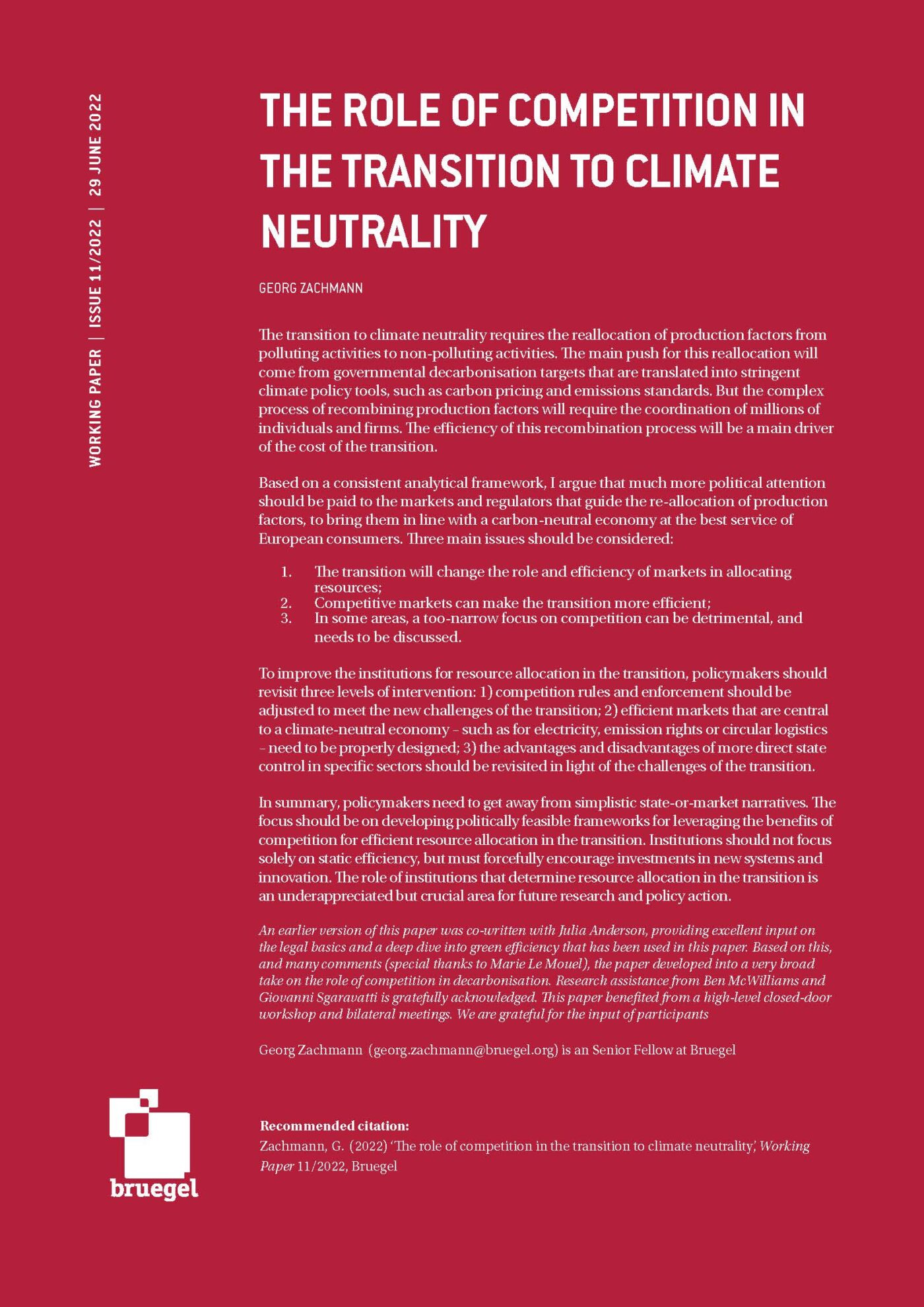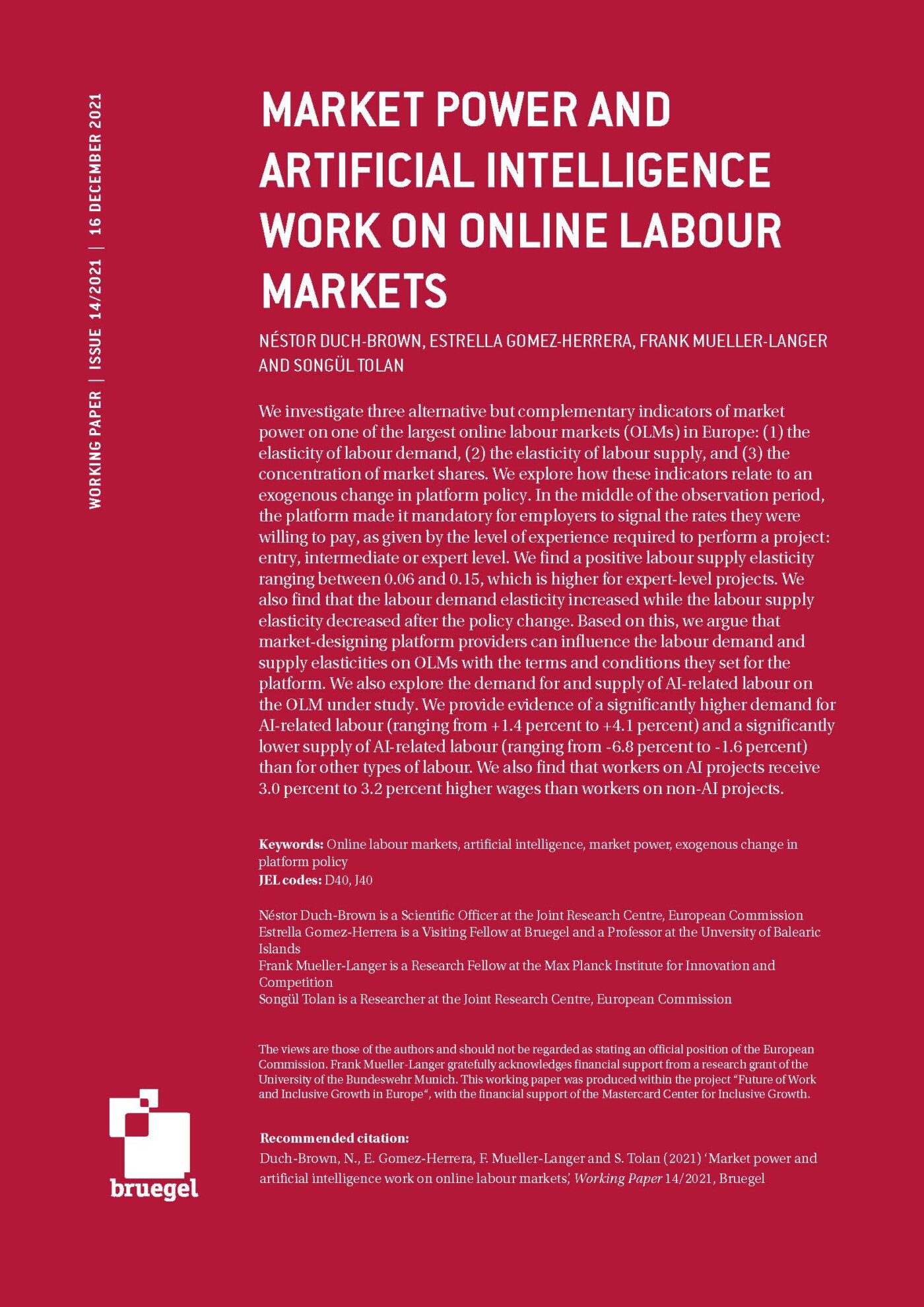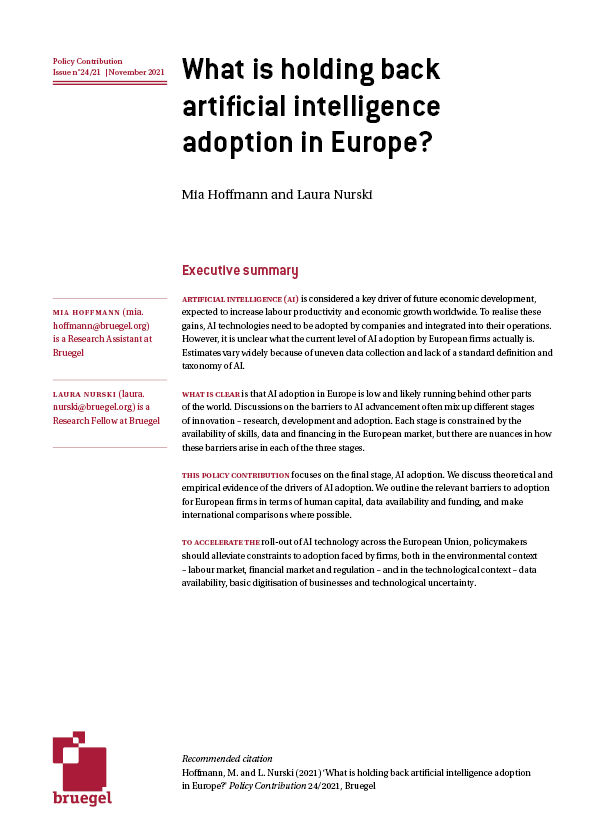Blog Post
Services in European manufacturing: servinomics explained
Making the manufacturing sector more competitive is vital to restore economic growth in Europe. Changing business models to sell services as well as products can provide useful revenue to manufacturers.
Manufacturers are increasingly selling services as well as manufactured products, in order to compete in increasingly tough global markets.
Companies like Rolls Royce are selling the use of their engines, charging for power per hour, rather than selling the engines themselves. French train manufacturer Alstom has introduced ‘train life services’, offering maintenance and parts supply services to transport companies. Xerox has even brought in document management, allowing consumers to manage content online.
These firms compete in very different industries with specific lifecycles (Crozet and Milet, 2014; Cusumano, Kahl and Suarez, 2015) and supply chain structures (Bustinza, Bigdeli, Baines, and Elliot, 2015). However they are all using services rather than products to increase their competitiveness.
This is in response to a tough business environment. The manufacturing industry declined to around 15% of total GDP in the EU last year (Figure 1), a share that the European Commission seeks to increase to above 20% by 2020.
However pressure to reduce costs has led companies to move a high share of production overseas, where labour costs are lower.
Manufacturing firms’ increasing adoption of service business models, and the need to create well-qualified jobs, have drawn policymakers’ attention to ‘servinomics’, the economic impact that the offering services has on product firms, particularly on manufacturing companies (EC 2011, 2012).
Evidence on the relationship between service business models and firm performance is mixed. Suarez, Cusumano, and Kahl (2013), for instance, find a U-shaped relationship between US firms’ profits and service revenues. Kohtamäki, Partanen, Parida, and Wincent (2013) show a similar relationship in a representative sample of Finnish machine equipment companies.
Firms may introduce services as a precautionary strategy: services are more resilient to business cycle fluctuations (Ariu, 2016). At the same time, implementing services can be a way to differentiate products from competitors’ goods (Crozet and Milet, 2015).
Ariu, A., Mayneris, F. and M. Parenti (2016) Providing Services to Boost Goods Exports? Theory and Evidence.Mimeo, University of Geneva.
Services can also be complements to goods, meaning that demand for the good and the service are linked (Ariu, Mayneris, and Parenti, 2016). If a manufacturer starts to offer services, consumers might buy the product and the service together – in the case of Alstom, clients might buy a train and also ‘train life services’ at the same time.
According to research by Visjnic Kastalli and Van Looy (2013), when services are first introduced by manufacturing companies, it has a positive impact, but the effect gradually diminishes with the growth of service sales, to increase again when service sales are relatively large.
This relationship also varies with time. Looking at French companies from 1997 to 2007, Crozet and Milet (2015) show that firm performance and size increase significantly in the first year after the adoption of combined product and services offerings, staying fairly constant after the second year.
Moreover, Ariu et al. (2016) show that firms that sell services and goods can sell more and at higher prices.
Challenges
European manufacturing firms are often reluctant to implement service business models, as the results are difficult to predict.
It might be more beneficial for society if firms offer services as well as goods, but manufacturers seeking to maximise profits do not take this into account. Policymakers must realign incentives by implementing reforms in the service sector (Arnold, Javorcik, Lipscomb, and Mattoo, 2015).
The management of uncertainty
A primary concern for European manufacturers is the uncertainty involved in introducing new services. This has a large impact on the ‘make or buy decision’, whether to produce internally or outsource the production of a component, product or service.
Outsourcing allows firms to experiment with service provision without so many risks (see for instance Cusumano et al., 2015).
Risks and uncertainty are especially relevant in Europe, where on average firms are small: according to Eurostat, in 2015, 92.7% of non-financial firms employed fewer than 10 employees, while roughly 20% of manufacturing workers were employed in firms of less than 250 people.
This means that developing services is often too risky for small manufacturers, and they cannot compete globally unless external firms can offer the right services.
Leadership in the digital economy
Another important aspect of the debate on ‘servinomics’ is the digital ecosystem in Europe.
Digital technologies are reshaping the way manufacturing firms produce and compete ( Porter and Heppelman, 2014). This is particularly important in Europe, given the relatively smaller size of its manufacturers, and their potential need to externalize service provision to firms with an expertise in digital technologies.
The challenge for European manufacturers is that US seems to be leading the provision of digital service. With the exception of firms like Skype or Spotify, companies like Google, Facebook, Twitter, Linkedin, Dropbox, Amazon were all born in the US.
This anecdotal evidence suggests that US entrepreneurial digital ecosystem is more apt to service business models than European ones.
Reducing the digital gap with the US will be crucial to increase the competitiveness of European manufactures in the upcoming years.
Policy recommendations
Encouraging entrepreneurship
European manufacturers recognise the impact of offering both services and products on regional growth. When executives of UK manufacturers were interviewed, most of them agreed that manufacturing firms offering services has a positive impact, both on the competitiveness of the economy and the creation of jobs.
They also pointed out that for services to play a bigger role in the European manufacturing sector, policymakers will have to change European managerial culture.
Here, a key role will be played by future managers and their keenness to engage in risky business activities. As suggested by Wilson (2015), European educational institutions could help develop a more entrepreneurial culture, by encouraging young entrepreneurs to chase business opportunities.
Better policy coordination.
Policymakers could help firms to introduce service-based business models by better coordinating innovation and internationalization policies.
European manufacturing firms, especially small and medium sized businesses (SMEs), are often present in international markets with a mix of relatively simple international and innovation activities, for example through outsourcing service activities. Better coordination would allow firms to benefit from providing services, without the associated costs and uncertainty associated (as suggested by Cusumano et al, 2015).
This is already happening in some cases. Firms which are both sources and carriers of knowledge, known as knowledge intensive business services, often transfer high value-adding services to other organizations that are located in the same area but lack internal capabilities.
This fosters collaboration between firms, impacting job creation in the area where firms gather.
Creating digital networks
The success of US firms providing digital services relies heavily on critical mass and networks between firms.
Systems where clients can make early adjustments to their services increase both the efficiency and the reliability of the services provided.
These kinds of collaborative networks have an essential role in building a vibrant digital ecosystem: territorial models based on networks between firms, like inSilicon Valley, have outperformed the high investments of European and Japanese manufacturers.
More collaboration among entrepreneurs, corporations, universities, and other actors is needed. This could happen through knowledge intensive business services being located more closely together even if the nature of the businesses seems to be unrelated.
Easing access to capital
Access to capital is essential in order to create networks of digital companies and unleash growth.
European and Japanese firms are losing global share in major consumer products, in part due to institutional practices that prevent the development of a venture capital market for start-ups (Cole and Nakata, 2014). Many start-ups have moved to the US to achieve commercial success.
European policymakers must improve the efficiency of capital markets and deepen integration. This would attract more private capital and help create the critical mass of technological developers, entrepreneurs and financial backers that a digital ecosystem needs to be competitive in today’s economy.
We thank Andrea Ariu (University of Geneva), Ivanka Visjnic (ESADE Business School) and Guntram Wolff for providing comments on early versions of this post. Oscar F. Bustinza and Ferran Vendrell-Herrero form part of the Horizon 2020- Marie Skłodowska-Curie Actions project called MAKERS: Smart Manufacturing for EU Growth and Prosperity.
Republishing and referencing
Bruegel considers itself a public good and takes no institutional standpoint. Anyone is free to republish and/or quote this post without prior consent. Please provide a full reference, clearly stating Bruegel and the relevant author as the source, and include a prominent hyperlink to the original post.








